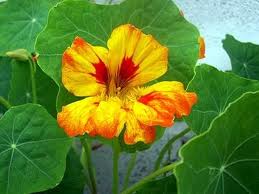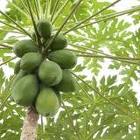Herbs In Sea Minerals
A quote from Rudolph Steiner "for every human illness, there is a plant which is the cure"
These are the herbs found in Amena's Sea Mineral Products along with properties attributed to them (please read the disclaimer). This information is widely available in books about herbs, botanical journals, the internet, research journals. We encourage you to do your own research. Our founder Gerry Amena came from Europe and also worked with the Medical Corps of the Dutch Army in Indonesia. In both places, and at his time of being, especially during the 2nd world war. He learnt that many plants have properties that can help sustain wellness in an environment where it was not always possible to get medical help. He developed his formulas with the intent to help the body help itself.
Disclaimer:The statements made regarding these products and/or ingredients are for education purposes only have not been evaluated by the Therapeutic Goods Administration. The efficacy of these products has not been confirmed by TGA-approved research. These products are not intended to diagnose, treat, cure or prevent any disease. All information presented here is not meant as a substitute for or alternative to information from healthcare practitioners. Please consult your healthcare professional about potential interactions or other possible complications before using any product. While these herbs have been used traditionally for healing, we at Amena's Sea Minerals make no such claim and although we are giving you Information that is widely available, we do not state or infer that our nutritional products should be used as a healing modality.
Direct Links:Nasturtium; Plectranthus Amboinicus; Carica Papaya; Hawthorn; Nettle
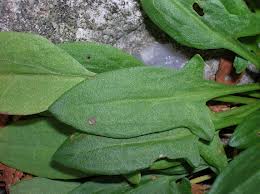
SHEEP SORREL An ingredient in Amenas Ultra Boost Oral Tonic, Targeted Care and Ultra Hydrating Cream
Sheep Sorrel is also known as sour weed and red sorrel (USA)
Sheep Sorrel has been used as a medicinal herb for centuries. It is quoted as a herb of healing in the 16th century novel Don Quixote. Pliny and Dioscorides mention sheep sorrel and its contemporary use in the 1st century AD. The Native Canadian Ojibway used Sheep Sorrel medicinally according to the traditions of the tribe, for instance the Aleut and Cherokee used it dermatologically for many skin conditions, the Mohegans for gastrointestinal conditions, and the Squaxin as a tuberculosis remedy. In the 1920's nurse Renee Caisse1. observed Chippewa Indians using a concoction including Sheep Sorrel as a cancer cure and based her famous Essiac tea around Sheep Sorrel, Burdock Root, Turkish Rhubarb and Slippery Elm. The Sheep Sorrel to target the cancer and the others to cleanse the blood.
Purported Properties:
Anti cancer - destruction of cells
Anti Angiogenesis - inhibits the ability of cancers to generate a blood supply
Anti Inflammatory
Anti Bacterial
Anti Oxidant
Inhibits Mestastasis
Helps with side effects of Chemotherapy
Diuretic
Herpatoprotective (protecting the liver damage induced by xenobiotics)2.
Helps with sinusitis - tannins reduce mucous production
Contains Vitamins A, B complex, C, E and K
Contains Clorophyll - liver cleansing
Links: Sheep Sorrel; Nasturtium; Plectranthus Amboinicus; Carica Papaya; Hawthorn.
NASTURTIUM An ingredient in Ultra Boost Oral Tonic, Targeted Care and Ultra Hydrating Cream
Nasturtium (Tropaeolum Magus) also known as Monks Cress and Indian Cress
Nasturtium can be found in many gardens often growing wild. The leaves, flowers and seeds can be eaten and indeed it was quite common to use a few nasturtium leaves in a salad or sandwich. Unfortunately not too many sour or bitter tasting foods are included in our modern diet, to our detriment as bitter taste , especially in Ayurveda, help the absorption of minerals and cleanses tissues.
Purported Properties:
Used for respiratory infections
Anti Bacterial
Anti Septic
Used for urinary tract infections
Diuretic
Regulates Hyperthyroidism
Stimulates the digestive tract
Heals Wounds
Reduces Inflammation
Promotes Circulation
Expectorant
Does not damage intestinal flora
Reduces Hypertension (studies in rats)
Main Substances: glucosinolates, mustard oil, flavonoids, carotenoids, Vit C, isoquercitrin
Some herbalists believe it has had success fighting off Staphylococcus aureus.
Cautions**:
Not to be used when stomach or intestinal ulcers are present
Not recommended for those with Kidney Disease
Not recommended for Pregnant or Breastfeeding Mothers
Resources: Gerry Amena/Oral; www.sciencedirect.com/science/article/pii/S0378874110009025; www.webmd.com/.../ingredientmono-526-nasturtium.aspk?; www.bioweb.uwlax.edu.bio203/S2012/stipan-sama/nutrition.html; www.botanical-online.com/english/nasturtium.com; www.about-herbs.eu/nasturtium-miraculous-killer-bacteria.html
Links: Sheep Sorrel; Nasturtium; Plectranthus Amboinicus; Carica Papaya; Hawthorn.
PLECTRANTHUS AMBOINICUS An ingredient in Ultra Boost Oral Tonic, Targeted Care and Ultra Hydrating Cream
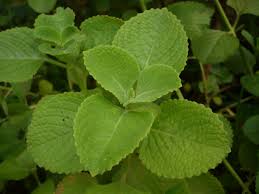
Plectranthus Amboinicus also known as Coleus Amboinicus (formerly), Mexican Mint, Cuban Oregano, Spanish Thyme, Mother/Queen of Herbs, Five Spice, Indian Borage, Dao Shou Xiang, Puerto Rican Oregano
Plectranthus Amboinicus is native to South Eastern Africa and grows readily in the sub tropics. The leaves have been used crushed as a topical treatment for skin conditions and bruising and also as a tea for many ailments. Research shows positive effects on breast and prostate cancers. Contains flavonoids; quercetin, apigen, leceolin, salvigenin, genkwanin and volatile oils thymol and carvacol.
Purported Properties:
Anti Biotic
Anti Bacterial
Anti Fungal
Anti Viral
Anti Inflammatory
Anti Rheumatic
Anti Microbial
Anti Tumour (Sarcoma-180 and Erlich ascile carcinoma)
Diuretic
Good for kidney and lymphatic system
Mildly sedative
Vitamins C, A and E
Immune System Booster
Omega-6 and linoleic acids
Anti Oxidant
Eczema, sebhorreic dermatitis, neurodermatitis
Expectorant and cough reliever
Cautions**:
Not for use by pregnant and breastfeeding mothers
Resources: Gerry Amena/Oral; www.greenpharmacy.info/article.asp?issn-0973-8258;year2008;volume=2;issue=3;spage=182;epage=184;aulast=Kaliappan; www.herbsarespecial.com.au/free-herb-information/mother-of-herbs.html; www.herbs-herbalsuppliments.knoji.com/herbs-cuban-oregano-culinary-medicinal-uses-and-nutrition www.organicfacts.net/health-benefits/herbs-and-spices/indian-borage-mexican-mint.html
Links: Sheep Sorrel; Nasturtium; Plectranthus Amboinicus; Carica Papaya; Hawthorn.
PAW PAW An Ingredient in Ultra Boost Oral Tonic, Hawthorn Oral Tonic, Targeted Care and Ultra Hydrating Cream
Paw Paw leaves have been used for many years in folk medicine for warts, cancers, tumours, a digestive aid along with the fruit and seeds. Scientists have been researching its efficacy to fight cancer and have found that the substance in carica papaya leaf has dramatic cancer fighting properties and boosts the production of T Cells (Th1-type cytokines), boosts platelet counts in Dengue fever and significantly lowered the growth of cervical, breast, liver, lung and pancreatic lab grown tumours, in fact the higher the dose of carica papaya leaf extract the more impact on the tumour. Tests and research are continuing.
Purported Properties:
Anti Oxidant
Immunomodulatory
Anti Bacterial
Digestive aid
Vit A, C, B, B12 and folic acid
Magnesium, Potassium, Iron, most amino acids, quinic acid, quercitin
Possibly Anti Malarial, tests are continuing. (Malaysia)
Anti Cancer
Cautions**:
Not to be used with thyroid stimulators KC-X or with CoQ10
Resources: www.cms.herbalgram.org/herbclip/483/051364-483.html; www.sciencedaly.com/releases/2010/03/100309182449.htm; www.rochway.com.au/blog/benefits-of-papaya-leaf-extract/; www.cancernaturaltherapyfoundation.org/health-articles-view.php?id=55
Links: Sheep Sorrel; Nasturtium; Plectranthus Amboinicus; Carica Papaya; Hawthorn.
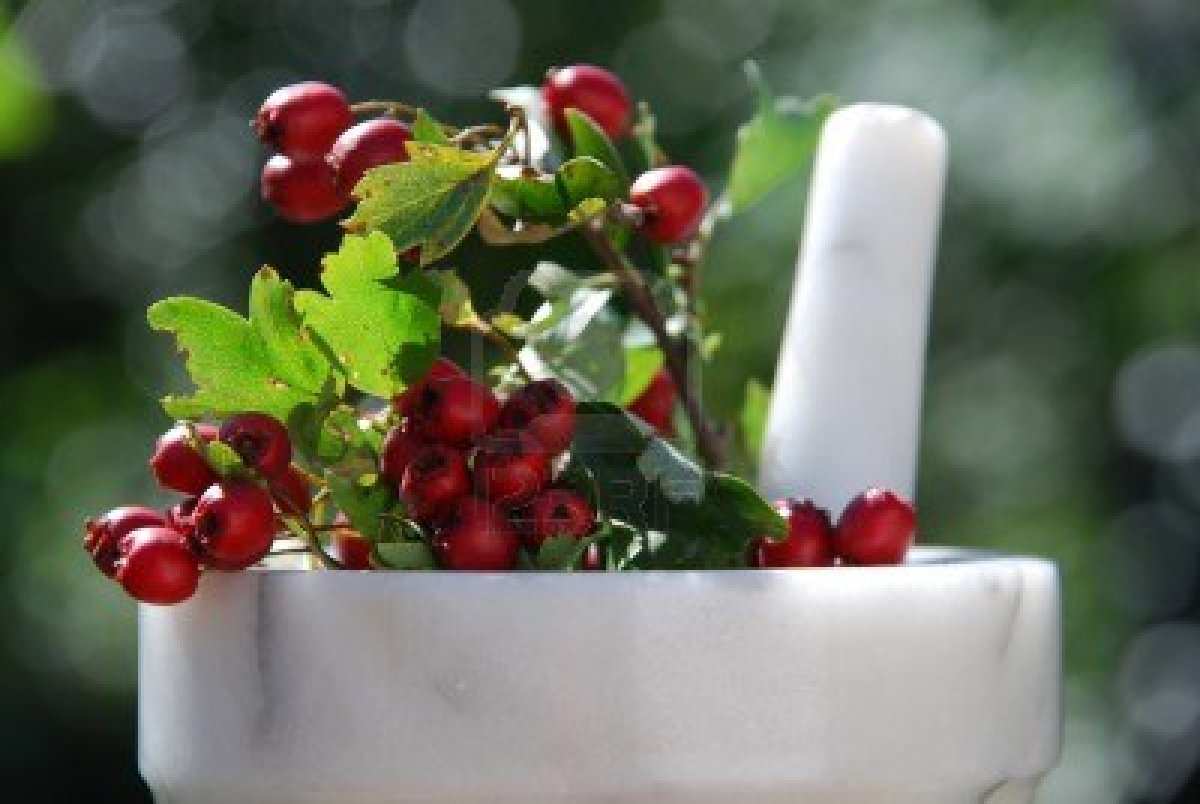
HAWTHORN An ingredient in Hawthorn Oral Tonic
Hawthorn also known as Crataegus (Sp), May Tree, Thorn Apple, Goddess Tree
Hawthorn has been used for conditions of the heart and circulation for many centuries. It is widely regarded as a safe and effective treatment for early stages of heart disease and has been endorsed by the German Commission E the Scientific Advisory Board similar to the FDA and TGA.
Purported Properties:
Anti Oxidant
Anti Inflammatory
Diuretic
Increases Blood Flow
Used for:
Congestive Heart Failure
Chest Pain
Angina
Irregular Heartbeat
Low and High Blood Pressure
Kidney Stones
Atherosclerosis
High Cholesterol
Indigestion
Diarrhea
Anxiety
Cautions**:
Not recommended for pregnant mothers
Not to be used with Digoxin (Lanoxin)
May reduce High Blood Pressure and therefore may cause blood pressure to go too low if on High Blood Pressure medication.
Resources: www.sciencedirect.com/science/article/pii/S0944711311800188; www.cms.herbalgram.org/herbclip/221/review42747.html:www.umm.edu/health/medical/altmed/herb/hawthorn; www.herbwisdom.com/herb-hawthorn-berry.html; www.webmd.com/...supplements/ingredientmono-527-hawthorn.aspx?
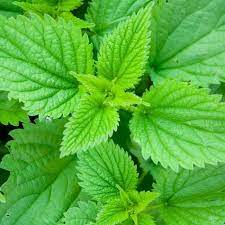
STINGING NETTLE an ingredient in Nettle Oral Tonic
NETTLE ( Urtica Doica) also known as Stinging Nettle
Stinging nettle is found just about all over the world and has been used as a traditional or folk medicine in many areas. Also used to feed as fodder to animals, the stems have been used as material to make rope, and as a nutritional additive to soups and teas. A truly handy weed!
There have been many trials done and, in fact, continue to be done on the health benefits of the humble nettle.
Purported Properties.
antiviral
antimicrobial
antihelmintic
anticancer
nephroprotective (protects the kidneys)
hepatoprotective (protects the liver)
cardioprotective (protects the heart)
antiarthritis
antidiabetic
antiendometriosis
antioxidant
anti-inflammatory
Used for:
Allergic Rhinitis/Hay Fever
Blood Cleanser
Prostate Problems (along with the nettle root)
Urinary Issues
Contains bioavailable iron and vitamin C
Starting to be used as a diabetic support
Cautions:
Not recommended for Pregnant Women
Resources: American Botanic Council; Hindawi Evidence-Based Complementary and Alternative Medicine Volume 2022, Article ID 4024331, 30 pages https://doi.org/10.1155/2022/4024331; STM Journals, A journal of Pharmacognosy, ISSN: 234-7276 Volume 6, Issue 2. Ghorbanibirgani A, Khalili A, Zamani L. The Efficacy if Stinging Nettle (Urtica Doica) in Patiens with Benign Protatic Hyperplasia: A Raandomized Double-Blind Study in 100 Patients. Iran Red Cres Med J. 2013;15(1)9-10.DOI:10.5812/ircmj.2386
**Talk over the use of herbs and their possible interactions, especially if you are taking medication, with your preferred medical professional.
.png)

